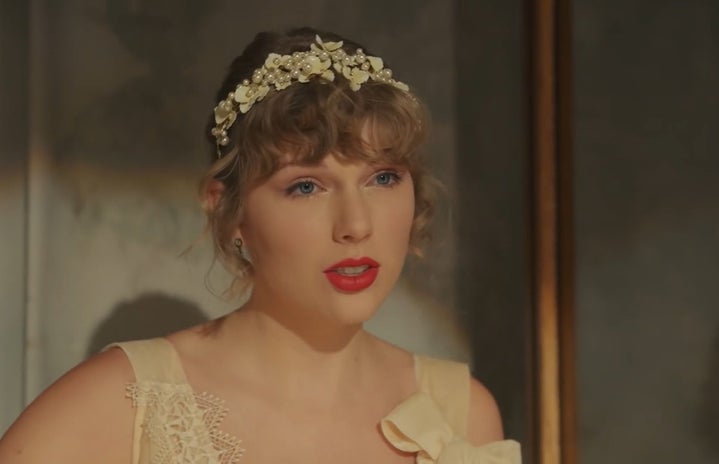Last week, Taylor Swift dropped a surprise announcement on Good Morning America: her second studio album Fearless had been completely re-recorded and was coming soon! Swift also announced that the re-recording of her classic single Love Story would be available on February 12th. It has been a week since the announcement and the rerecording of Love Story, now titled Love Story (Taylor’s Version) has smashed records. Gaining over 10 million streams and critical praise, Love Story (Taylor’s Version) provided a promising start to the journey of Swift’s re-recordings.
But why is she re-recording all of her music anyways?
The re-recordings come on the tail of a contentious legal battle between Swift and her ex-manager Scooter Braun. Following Swift’s departure from her old record label Big Machine Records, Swift lost the rights to her entire catalog of music up to her 2019 album Lover. Braun and his associates refused to sell it back to Swift. She has no legal rights or ownership of her work. And if you know anything about Taylor Swift, you know that her work is deeply personal and she has written every song in her catalog. However, while she lost the rights to the originals, she can rerecord her old music and make it hers again.
Swift has spoken extensively about the importance of artists owning their work.
Unfortunately, Swift is not the only artist this has happened to, Micheal Jackson, The Beatles, and numerous other talented artists have also lost rights to their music through complex and shady contracts. The Swift re-recordings are not just for sales or for die-hard Swifites but to prove a point—artists should own their work. Losing the right to one’s work is not just a legal technicality, it has real-world impacts.
Prior to the re-recording of Love Story, Swift could not allow for the song to be used in commercials or even played at her own concerts. Besides the monetary ramifications, losing one’s life work can be a traumatic, heartbreaking experience. In her two most recent albums, Swift writes in-between the lines and expresses the pain of losing her work. In her song It’s Time To Go from her most recent album Evermore, Swift sings “Now he sits on his throne in his palace of bones/Praying to his greed/He’s got my past frozen behind glass/But I’ve got me.” The re-recordings are not just a cash grab, it is a passion project for Swift.
The past year has seen Swift work harder than ever.
With two releases during quarantine, Swift has stated that she finds writing and music to be her escape. The past year also saw the general public gain a newfound respect for Swift. Her battle with Braun, new music, and political activism generated praise from numerous sources including political powerhouse AOC to pop artists like Halsey and Lady Gaga. Taylor Swift is no longer a pop princess, but a well-defined figure in the music industry. Over the next year, Swift is sure to continue to release both re-recordings and maybe even some new music. 2021 might be the biggest year yet for Taylor Swift.



